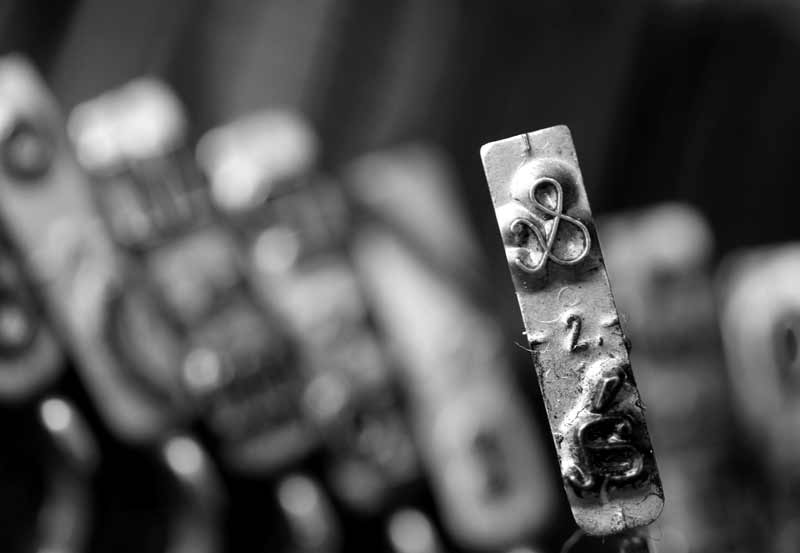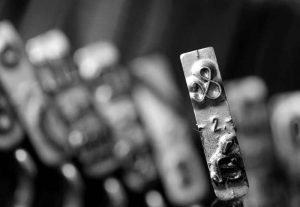
Dr. Niklas Bornhauser: En la búsqueda de las relaciones entre lengua y psicoanálisis
Al momento de abordar determinadas problemáticas, insertas a su vez en el cruce entre diversas disciplinas, pensamientos o descubrimientos, se hace imperante considerar el entorno histórico, social y cultural en el que los acontecimientos sucedieron.

El contexto relacional, tanto pasado como actual, es un generador de significaciones, de cuyos efectos la historia de las ciencias no puede separarse.
En este sentido, el Dr. Niklas Bornhauser, académico de la Escuela de Psicología y del Doctorado en Psicoanálisis de la Universidad Andrés Bello, conduce una investigación cuya finalidad es contribuir a la escritura de una arqueo-genealogía de ciertos conceptos o problemas psicoanalíticos que, al mismo tiempo, considere el examen crítico de sus relaciones con otros discursos y prácticas no discursivas emparentadas.
A modo de ejemplo, el académico de la Universidad Andrés Bello manifiesta que se plantea el estudio de las relaciones de reciprocidad que existen entre la lengua y el pensar, tanto en general como en el caso del pensar psicoanalítico.
“La pregunta sobre la lengua alemana y la relación de Freud hacia esa lengua contribuye significativamente al develamiento de las condiciones de posibilidad para que se produjera, a fines del siglo XIX, el descubrimiento de lo inconsciente e implica, en el caso de la lengua castellana, un desafío: ¿Cómo no solamente forjar, en otra
lengua, el vocabulario respectivo para dar cuenta psicoanalíticamente de ciertos procesos asociados a lo inconsciente, sino cómo repensar el psicoanálisis, forjado en otras coordenadas históricas y políticas, en otra época y en otra comunidad lingüística, a partir de su lazo con la lengua castellana?”.
De esta forma, el Dr. Bornhauser explica que tanto la teoría como la práctica del psicoanálisis, reunidos por y en la figura del Junktim (es decir, de la yunta, la collera), están atravesados por un conjunto plástico y móvil de relaciones, que tienden a cuestionar la impermeabilidad de dicha distinción, descentrando y fragmentando la supuesta unidad e identidad del discurso psicoanalítico.
“La praxis psicoanalítica, de este modo, se abre a la posibilidad de ser repensada a partir de la revisión crítica de su propio a priori histórico, integrando, en la medida de lo posible, las deudas del pasado y las exigencias del presente”, agrega el docente.
Finalmente, expone que “el trabajo freudiano es un trabajo no solamente en y sobre el lenguaje, sino, asimismo, en la lengua, por lo que un estudio de las afinidades electivas resultantes, mediante el involucramiento de la lingüística, las ciencias literarias e históricas, entre otros, contribuye significativamente a todo proceso emancipatorio en el sentido ilustrado, que si bien parte del estudio pormenorizado y sereno del texto freudiano, genera efectos secundarios que trascienden con creces este acotado ámbito del saber”.
Descargar PDF: En la búsqueda de las relaciones entre lengua y psicoanálisis
In search of relationships between language and psychoanalysis
At the moment certain issues are addressed, diverse disciplines, thoughts, and discoveries intersect. This intersection makes it imperative to consider the historical, social, and cultural environment of the events under discussion.

Both past and present contexts converge to create meaning, the effects of which cannot be precisely
distinguished.
Dr. Niklas Bornhauser, researcher for the School of Psychology and for the Doctorate Program in Psychoanalysis at the Universidad Andrés Bello, is conducting research that will contribute to an archeogenealogical construction of certain concepts in psychoanalysis. This investigation will also critically examine archeogenealogical relationships to similar discourses and practices.
For example, Dr. Bornhauser is studying the reciprocal relationship between language and thought, both in regards to general and psychoanalytical thinking. “The question regarding Freud’s relationship to the German language is significant for uncovering the possible conditions that produced the discovery of the unconscious mind at the end of the 19th century. This lingual relationship implies, in the case of the Spanish tongue, two challenges – how to create, in another language, the vocabulary for a psychoanalytical account of certain processes associated with
the unconscious, and, also, how to rethink in the Spanish tongue psychoanalysis itself, which was forged in another historical and political climate, in another era, and in another linguistic community”.
In this context, Dr. Bornhauser explains that both the theory and practice of psychoanalysis, united by the concept of Junktim (i.e. the yoke, the collar), are traversed by a set of malleable and mobile ties that tend to question the imperviousness of said distinction, thereby decentering and fragmenting the supposed unity and identity of psychoanalytical discourse.
“Due to this, psychoanalysis becomes open to the possibility of being rethought through a critical revision of its a priori history, integrating the doubts of the past and the demands of the present,” adds Dr. Bornhauser.
Dr. Bornhauser concludes that, “Freud’s work is not only transmitted through the language, but, also, in the language. Because of this, a study that evaluates the resulting elective affinities in linguistic, literary, and historical contexts will significantly contribute to the entire emancipatory process of psychoanalysis. Although
this investigation may deviate from the thorough and serene study of Freudian texts, it will produce effects that greatly transcend the limited environment of knowledge.”
Download PDF: In search of relationships between language and psychoanalysis
